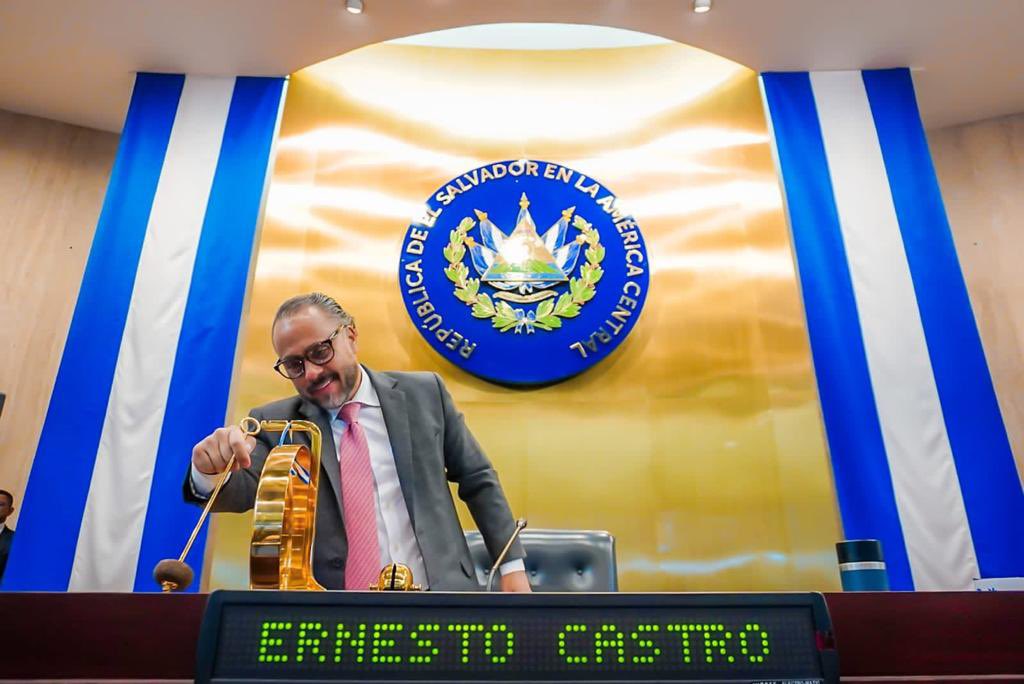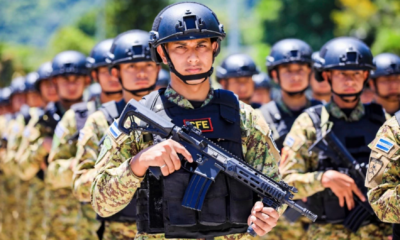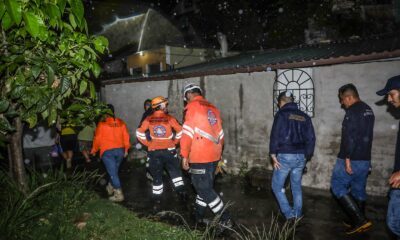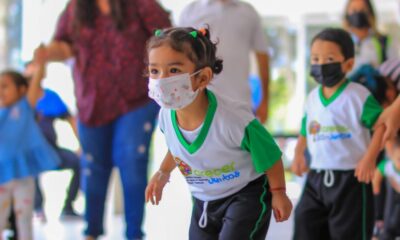Central America
Congress of El Salvador approves extension of emergency regime

May 17 |
The Congress of El Salvador approved this Tuesday the request presented by President Nayib Bukele to extend, for the fourteenth consecutive time, the emergency regime, with 67 votes in favor, six against and four abstentions according to the Legislative Assembly.
The measure will suspend constitutional rights until June 15. This was adopted at the end of March last year as part of President Bukele’s security strategy to confront the crisis of violence caused by gangs.
“I know that this extension of the exception regime is not to the liking of some people in this country and it is logical, it is understandable that these people were benefiting from the pain of our people. Since the first day of the President’s administration, we have accompanied the National Civil Police, we began to look for criminals and in less than four years we have achieved 365 days with zero homicides”, highlighted the Minister of Defense, René Francis Merino Monroy.
The Minister of Security, Gustavo Villatoro, affirmed that more than 6.3 million Salvadorans support the exception regime and at least 3 million Salvadorans are satisfied with the transformation of the country in terms of security.
The president of the Legislative Assembly, Ernesto Castro, will extend the security measure “as many times as necessary” until the country is free of gang members.
The Central Government’s work to combat gangs is internationally recognized. Local media affirmed that the mayoral candidate of Cali, Colombia, Jaime Arizabaleta, said that the Salvadoran president had the capacity to turn El Salvador into the safest country in Latin America.
Central America
Laura Fernández Says She Will ‘Never’ Allow Authoritarianism in Costa Rica

Costa Rica’s president-elect, right-wing leader Laura Fernández, said she will “never” allow authoritarianism under her government, in her first speech after winning Sunday’s presidential election.
Fernández, the political heir of outgoing President Rodrigo Chaves, has been accused by her opponents of seeking to steer the country toward authoritarian rule through her hardline proposals against drug trafficking and plans to reform state institutions.
“I, as the new president of the Republic, will never allow authoritarianism or arbitrariness—things that no one wants in Costa Rica,” Fernández said to cheers from her supporters gathered at a hotel in the capital.
The 39-year-old political scientist criticized her rivals for centering their campaign on what she described as a narrative of “authoritarianism and dictatorship.”
“They tried to scare voters, but the electorate did not fall into the trap,” she said.
Without offering details, Fernández acknowledged that her administration will seek to change the country’s “political rules of the game,” in what she described as a necessary step for Costa Rica, one of Latin America’s most stable democracies.
Central America
Costa Rica Goes to the Polls as Voters Choose Continuity or Change

Costa Ricans head to the polls today to elect the president of the republic and 57 members of the Legislative Assembly for the 2026–2030 term. Voters must choose between continuing the political project of outgoing President Rodrigo Chaves by supporting the ruling right-wing candidate Laura Fernández, or opting for a change in direction proposed by the opposition.
Fernández, representing the Pueblo Soberano Party (PPS), leads opinion polls with close to 40% of voting intention, bolstered by the outgoing president’s approval rating, which exceeds 50%. Chaves is barred from seeking immediate re-election under Costa Rican law.
Trailing far behind is Álvaro Ramos of the National Liberation Party (PLN), with less than 10% support. He is followed by Claudia Dobles of the Citizen Agenda Coalition (CAC), Fabricio Alvarado of New Republic (NR), and Ariel Robles of the Broad Front (FA), each polling between 3% and 5%. Undecided voters, who account for more than 30% of the electorate, could determine the outcome of the presidential race or force a runoff.
In a statement, Costa Rica’s Supreme Electoral Tribunal (TSE) reaffirmed its commitment to transparent and secure elections. “As has been the case for more than 76 years of democratic life in our country, the Supreme Electoral Tribunal guarantees all Costa Ricans that the national elections to be held this Sunday, February 1, will meet the highest standards of security and absolute transparency, allowing us to continue enjoying electoral processes in peace and freedom,” the institution said.
Authorities reported that 53,251 party observers will take part in the electoral process. Of these, 12,472 belong to the Social Christian Unity Party, 11,524 to Pueblo Soberano, 10,451 to the PLN, and 4,141 to the Citizen Agenda Coalition, among others. In addition, six political parties have sworn in 7,520 members of polling station boardsdeployed nationwide.
Central America
U.S. and Guatemala Sign Trade Deal Granting Zero Tariffs to Most Exports

The United States signed a reciprocal trade agreement with Guatemala on Friday, under which 70.4% of Guatemalan exports will enter the U.S. market tariff-free.
Guatemalan President Bernardo Arévalo highlighted the importance of the agreement, stating that it creates a framework of cooperation, certainty, and new opportunities for producers, workers, and entrepreneurs in the country. His remarks were shared in a video published on his official social media channels.
In 2025, 30.3% of Guatemala’s total exports were destined for the United States, amounting to approximately $4.3 billion. As a result, the agreement is expected to directly benefit key sectors of the Guatemalan economy, including agribusiness, manufacturing, and the textile industry.
“Today we have taken another step toward consolidating a country that, when it moves forward united, generates confidence, attracts investment, and creates real development opportunities for all its people,” Arévalo added.
The agreement with Guatemala follows a similar trade deal signed by the United States with El Salvador on Thursday, which includes the elimination of a 10% tariff on Salvadoran imports.
-

 Central America4 days ago
Central America4 days agoPanama Supreme Court Strikes Down Panama Ports Concession as Unconstitutional
-

 Central America4 days ago
Central America4 days agoU.S. and Guatemala Sign Trade Deal Granting Zero Tariffs to Most Exports
-

 International7 hours ago
International7 hours agoSpain Seeks to Ban Social Media Access for Children Under 16
-

 International7 hours ago
International7 hours agoMexico to Send Humanitarian Aid to Cuba Amid U.S. Threats Over Oil Shipments
-

 International6 hours ago
International6 hours agoHypothermia Linked to Most Deaths During New York’s Recent Cold Spell
-

 Central America2 days ago
Central America2 days agoCosta Rica Goes to the Polls as Voters Choose Continuity or Change
-

 International7 hours ago
International7 hours agoPetro Resumes Extraditions, Sends Top Criminal to U.S. Before White House Talks
-

 International6 hours ago
International6 hours agoEpstein Denies Being ‘the Devil’ in Newly Released Video Interview
-

 Central America7 hours ago
Central America7 hours agoLaura Fernández Says She Will ‘Never’ Allow Authoritarianism in Costa Rica
-

 International7 hours ago
International7 hours agoMexico Arrests Suspect in Shooting of Sinaloa Lawmakers
-

 International7 hours ago
International7 hours agoNFL Investigating Emails Linking Giants Executive to Jeffrey Epstein








































































































